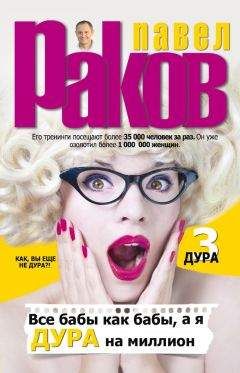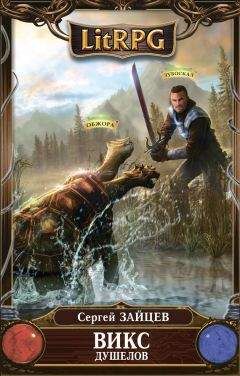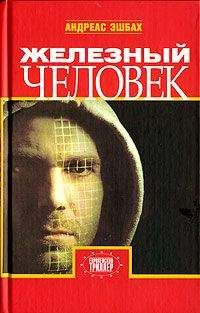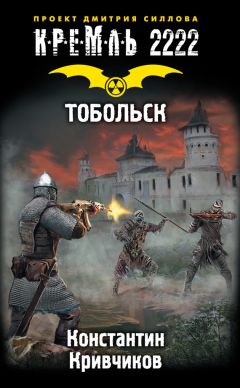Ed Lacy - Breathe No More My Lady
“One second, Mr. Anthony,” Jackson cut in. “Did your wife see Mr. Brown before he left the house? Did she speak to him?”
“No.”
“Now, both you and the Hunters have testified that you told your wife, '... if you ever say a single-out-of-the-way word to Hank, I'll kill you.' Those are your exact words?”
“Yes.”
“You said, '... if...' Francine ever said anything to Mr. Brown. After you... eh... talked to your wife on the veranda, said the words, did she ever see or talk to Mr. Brown again?”
“No. I told you, I drove Hank to the station.”
“Yes. Now when you returned to the house, what happened?”
“I found the Hunters sleeping on the lawn. Fran wasn't around. It was early afternoon, I thought it would be a good opportunity to try out my aqua-lung. I took the package from the car to the boat house, undressed. I saw Fran fishing a few hundred yards out in the bay, her back to me. I thought it would be a great joke to walk on the bottom of the bay, yank at her line. Unfortunately, the joke backfired. Since I had only used the lung once before—at a friend's place—I didn't know how to work it and somehow cut off my air supply. I had to surface.”
“Where did you come up?'
“A few feet from the boat. Of course Fran saw me. I swam over and climbed into the boat. She was beside herself with rage that I had purchased the diving outfit. I tried to explain it might give me material for a book. She called me a childish fool, and other names. I—”
“Exactly what other names, Mr. Anthony?”
“I don't see the importance of telling... She called me a dumb bastard and a stupid... Mr. Clair, there's no point in repeating the names. It might shock some people. Fran and I, being pretty worldly, used language that... again, her names were merely words said in anger.”
“What did you do after she called you the names?”
“I told her to take it easy, I knew what I was doing. I stood up to dive, swim back to shore and see what was wrong with the air valve. Fran got to her feet and tried to jerk the lung from my back. I pushed her away as I told her she would break the tubes. She came at me; grabbed the lines, cursing me. I said to stop it, said we'd talk it over later. She kept trying to break the lung. I got mad, pushed her away, screamed at her to stop. She came at me again, nearly upsetting the rowboat. I got so mad I... lost my head and struck out at her.” Again his voice sank to a nervous whisper.
“You said you struck out at her. You've done a lot of boxing, Mr. Anthony, did you hit her with your left hand or right? Was it a punch, a jab, a...?”
“I don't know! All I know is I was fed up with her carping about the damn aqua-lung! I know I struck out at her. All I remember is—the next thing I knew I was standing in the boat and Fran was... Oh, God, I keep seeing this over and over in my mind... poor Fran was hanging over the side of the boat, bleeding... her blood so dark on the green water.” Matt held a big hand in front of his face, bowed his head. I knew he wasn't acting now, that I was watching sincere sorrow.
In a voice syrupy with understanding, Jackson said, “I realize how painful this must be for you, but this is a court and I must ask you to tell us exactly what you did next.”
Matt took his hand away, wiped his lips. “I thought she was hurt. I knelt over her, was stunned to realize she was dead. It seemed impossible.”
“You were positive she was dead?” Matt nodded. “She didn't have a pulse. I took a silver spoon from her tackle box and held it to her mouth; she wasn't breathing. I started to pull her back into the boat, raise the anchor. Then I remembered the police wouldn't want me to touch a thing. I dived over and raced ashore. I dressed quickly, hid the diving outfit, and—”
“Why did you bother dressing, hiding the aqua-lung?” Jackson cut in.
Matt spread his hands on the air. “Frankly, I don't know. I was in a state of shock. I imagine I dressed because I thought I'd have to go for the police. I simply didn't remember about the phone. I was dazed. I kept drying my face and it was still wet... I was crying. As I started running toward tile house I kept thinking of the mess, the headlines. My aching head seemed to be in two parts: one dazed, the other full of racing thoughts. When I reached the house I saw the Hunters still dozing on the lawn. It came to me that I could avoid a scandal by calling it an accident. Frankly, I don't know now if I was thinking of myself then, or trying to avoid messy headlines for the sake of Fran's memory. Seeing the Hunters dozing, I knew it would be simple to use a gimmick I had once written into a story. A time gimmick that would establish an alibi for myself. As I said, I was thinking very fast and clearly—and at the same time I was confused, shocked. The dazed part of ray mind didn't give a damn what happened.” Matt stopped talking, stared at the crowded courtroom without seeing it.
Jackson said, “Exactly what do you mean by a 'time gimmick,' Mr. Anthony?”
Matt shook himself, as if he'd been lost in a day dream. “Joel Hunter was sleeping in his swimming trunks, wasn't wearing a watch. I played with the poodle for a moment, making him bark. The noise awoke Joel, but fortunately not Wilma, who was sleeping several yards away. Joel, mumbling, asked if I wanted to take a swim. I held up my wrist watch—but he was too far away to see it. It was 3:27 p.m. but I told him it was only a quarter to three, why not wait until Fran returned from fishing before we went swimming.”
“In other words, Mr. Anthony, you misled him about the time—a mistake of about three quarters of an hour?”
“That's correct. He went back to sleep, as I expected. I waited a moment, then tossed a pebble at Wilma. When she awoke I said, 'It's three-thirty, going to sleep the afternoon away?' She then awoke Joel, and I told him I'd just finished reading an article in a magazine lying on the table, that my eyes hurt. The implication was I'd read it during the supposedly three quarters of an hour Joel had been sleeping. I then sent May down to the dock to tell Fran to come back and join us in a swim. Naturally, she screamed upon seeing Fran hanging over the side of lie boat. I told her to call a doctor and the police as I swam out. Although I was still dazed, still terribly upset, I knew I was putting on a good act, that I could avoid a scandal. As it turned out, luck was with me—at first.”
“In what way, Mr. Anthony?”
Matt shook himself again. He was no longer smiling, had a far away look in his eyes. “What? Oh, the luck—the lousy luck. Fran must have caught a shoe lace on the duckboards of the rowboat, broke the lace when she fell. Well, the medical examiner decided, in view of that and the 'fact' we were all on the lawn while she was fishing, that she had stood up to cast, lost her balance or tripped over the lace, and fell. He called her death accidental.”
“Were you pleased with your cleverness, Mr. Anthony?”
“No. The full impact of losing Fran had hit me, I was sick. Just before supper, while I was dictating, May brought in—”
“You worked the same day?”
“Yes. Work is not only a habit, but also an escape for me. I had to think of something else, get my mind off Fran. Well, May brought Detective Kolcicki into my study. He told me flatly he didn't believe it was an accident, kept stressing that I'd threatened Fran. I... I tried to explain it really wasn't a threat. Then... the cobra struck up.” Matt was staring at the floor, his voice low but clear.
Jackson asked quickly, “Are you feeling well, Mr. Anthony?”
Matt nodded.
“Did you say something about a cobra?”
Matt stared at Jackson for a moment, as if seeing a stranger. “Did I? It's an expression of mine, meaning the fat's in the fire. You see, the fact is a cobra can't strike up.”
“Let us get back to what happened between you and Detective Kolcicki.”
Matt rubbed his hands together, then looked at the palms. “Of course. Well, I realized how silly my story sounded, that if I stuck to it, things would only be more involved. So I told him the truth. It was a relief, a great load off my mind. He typed it up and I signed the confession. Yes, I signed it!” Matt rose in the chair and then fell back, a cockeyed grin on his big mouth. He looked very sickly.
An attendant rushed over with a glass of water. Matt thanked him in a small voice, drank some. The judge asked if he wanted a recess. Matt shook his head gamely, whispered, “I want to get this ordeal over with, your Honor.”
Clair said, “Matt, perhaps a rest...?”
“No. I'm able to continue. Let's go.”
Jackson played with his beaded belt. “I have only one more question, Mr. Anthony. You have told us in great detail exactly what happened—except for the moment when you struck your wife. You obviously have a mind trained for detail, why are you vague about that all-important moment? Can't you recall if you struck her with your left hand, or your right...
“I don't know!” Matt shouted hoarsely. “She came at me and in a blind rage I struck out. That's all I know! Perhaps I blacked out. The next thing I knew she was hanging over the side of the boat... That's all I know.”
“Did you ever strike your wife before?”
“Never.”
Jackson said, “That will be all, Mr. Anthony.”
As Wagner stood up the judge recessed the court for 15 minutes. A guard led Matt away. I noticed Mart's shirt front was wet with sweat.
Leaving my hat on my seat, I took out my pipe and headed for the hall. May Fitzgerald was already there, blowing her smoke rings. She said, “I feel sorry for him. Several times I thought he was about to faint.”
I nodded. “At times I thought he was acting but—”
“That's a bloody thing to say.”
I grinned at her. “I was about to add but at the end I knew he wasn't.”
“Seems strange their final argument should be over something as trivial as a diving toy.”
I was about to say something trite, like, “That's life,” but didn't. May said it.
I said, “I suppose the case will go to the jury on Monday. Are you staying over?”
“I expect to. Missing a few classes won't hurt me.”
“Where are you staying?”
“With a colored family I know. Where else could I stay?”
There wasn't any comment to make and I smoked my pipe.
When Matt was brought back to the stand he seemed his old self, grinning at Wagner like a pug looking across the ring at his opponent.
Wagner stood beside the witness chair for a moment, then asked in his hard, emotionless voice, “Mr. Anthony, you have testified under oath you think about your work—your writing—practically 24 hours a day: is that what you said?”
“A part of my mind is thinking about my work all the time.”
“You let the plots 'cook' is the exact word you used. In other words, some part of your mind is concerned with your writing 24 hours a day.”
“That's right.”
“And you write seven days a week?”
“I do.”
“What part of your writing is fiction?”
Matt smiled. “It's entirely fiction.”
“Would I be correct in saying that since your writing is entirely fiction, all the characters, incidents and details in your books are a product of your own mind, Mr. Anthony?”
“You would be correct, Mr. Wagner.”
Jackson, was leaning forward, his long frame ready to leap to his feet his rugged face listening intently.
“In brief, the subject matter of your books is part of your mind, your thoughts, day after day?”
Matt nodded and the judge told him to speak up. Matt said, “That's correct.”
Wagner returned to his table where an assistant handed him a bulky briefcase. Wagner dumped about a dozen books, mostly paperbacks, and a mimeographed paper out on the table. The striking cover of the book we had recently reissued stood out. Wagner turned toward the judge. “Your Honor, these books represent the writings—the work—of Matt Anthony for the last 10 years. I wish to enter them into evidence as the State's exhibits, C, D, E...”
Jackson made his leap. “I object, your Honor. These books are works of fiction, therefore can not be considered as evidence!”
The judge held up his hands, called both lawyers to the bench. For a few minutes the three of them talked in low voices, both Jackson and the D.A. arguing vehemently. Finally they returned to their tables and the judge said, “The witness will step down. The jury will retire until I settle a point of law.”
When the jury left, Wagner stood up, said, “Your Honor, the witness has said that all day long, seven days a week, he thinks about his work. These books represent Matt Anthony's published writings for the past 10 years. In order to prove intent and premeditation, I strongly urge that it is entirely relevant to the State's case to show exactly what the defendant was thinking these last 10 years. His own writings will prove he was constantly thinking about physical violence, promiscuous sex, crime, murder and rape.”
“This is ridiculous, your Honor,” Jackson said. “The very nature of fiction means it is imaginary, therefore cannot be considered on a factual basis, nor as evidence.”
“I do not claim the contents of these books are factual, but it is a fact, according to the testimony, that these books constitute the major part of Mr. Anthony's thinking during the last 10 years. This is not my statement, but his own.”
“Your Honor,” Jackson said, “These books are a commodity manufactured by my client for a certain type market. He has to slant these books to the demands of that market, therefore—”
“They still represent his thinking, according to his own testimony,” Wagner cut in.
“I submit this is merely a cheap bit for sensationalism on the part of the prosecutor to influence the jury. I object to fiction being—”
“I will be the judge of that, Mr. Clair,” the judge told Jackson. He turned to Wagner. “Do you plan to read all these books to the jury, Mr. Wagner?”
“No, sir. I will merely read a few sentences and sum up the contents of each book. These books give us a unique opportunity to look into the mind of the defendant, for in the printed form we have his thoughts before us.”
“To put these novels into evidence will make this court the laughing stock of the bar, would be a mockery of justice and—”
“Mr. Clair, I am the judge in this court and perfectly capable of performing my duties.”
“I object to these novels as immaterial and irrelevant!” Jackson said, his face flushed with anger.
“Overruled.”
“Exception!” Jackson snapped, returning to the defense table, where Matt was busy writing. Jackson sat down and began whispering to Matt, gesturing with his hands—as if Matt were the judge.
The jury was recalled and Matt returned to the stand. Wagner picked up the mimeographed papers, asked, “Mr. Anthony, are you a member of the Mystery Writers of America?”
“Yes, although I doubt if my dues are paid up.”
“Do they publish a monthly newsletter called, The Third Degree?”
“Yes.”
“I now show you a copy of The Third Degree for January of last year. I show you an article on page 3 titled, 'The .45 Typewriter' by Matt Anthony. Did you write this article, Mr. Anthony?”




